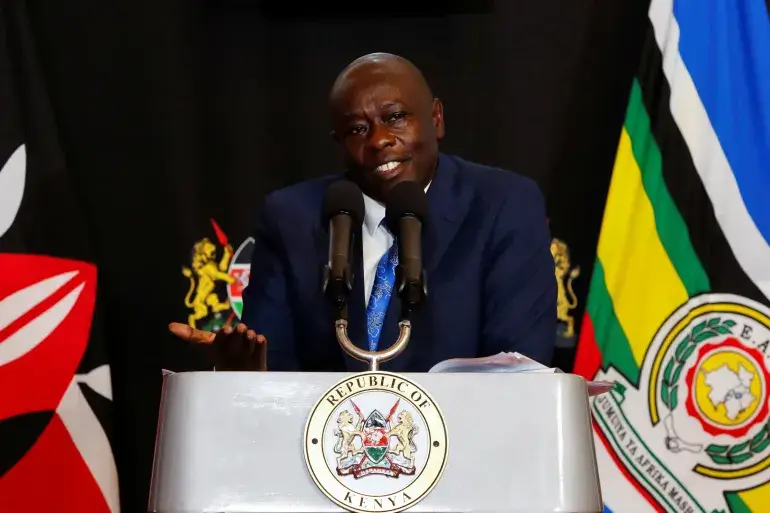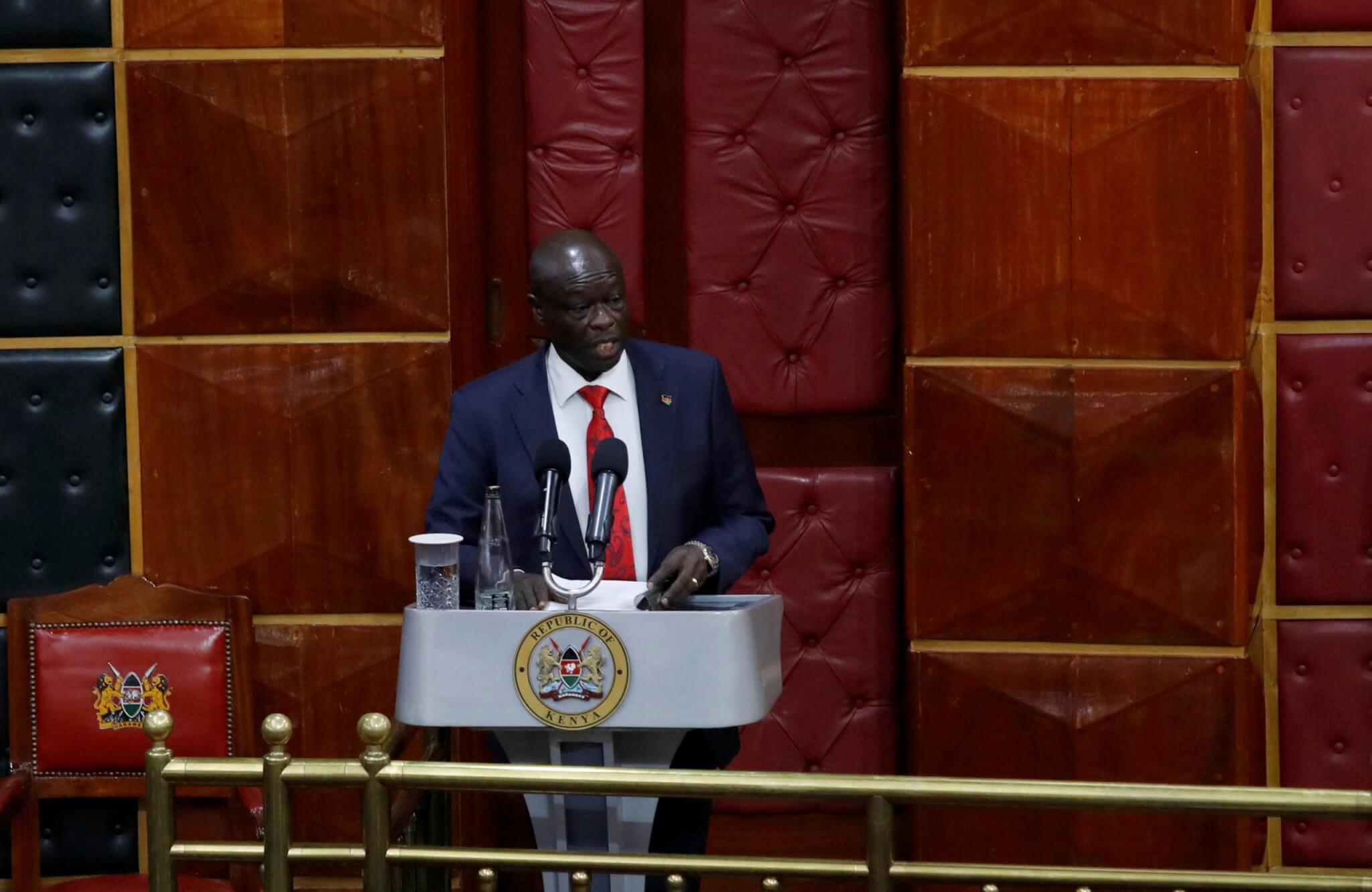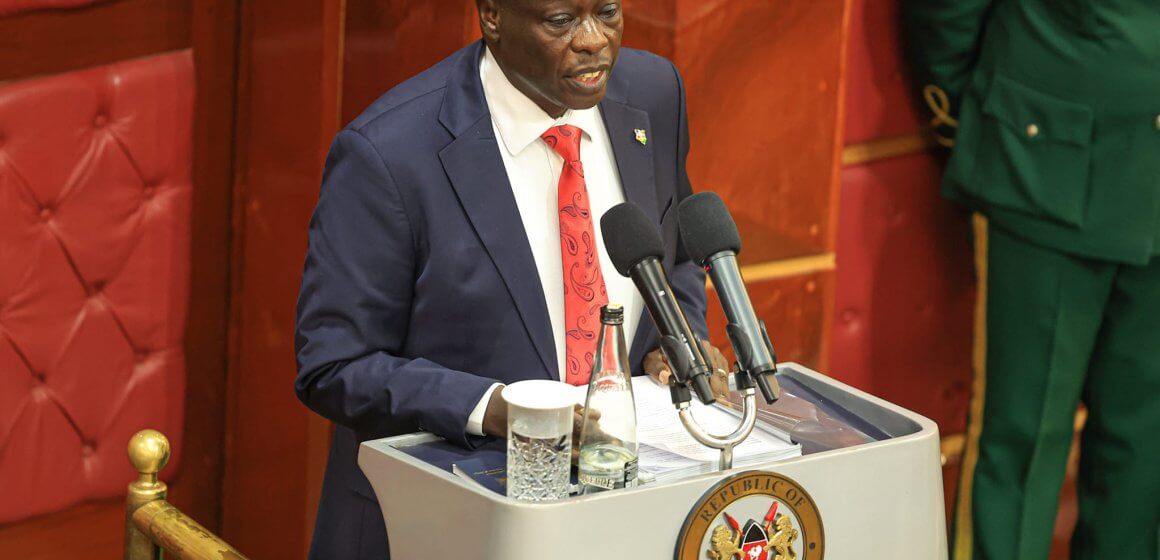|
LISTEN TO THIS THE AFRICANA VOICE ARTICLE NOW
Getting your Trinity Audio player ready...
|
Kenya’s Deputy President, Rigathi Gachagua, was impeached by the National Assembly on Tuesday, October 9, 2024, marking a historic first in the country’s political history. Gachagua’s ouster came after months of political tension and allegations of corruption, ethnic division, and undermining President William Ruto’s authority. The impeachment process, which has captured national attention, now heads to the Senate for final deliberation.
The impeachment motion, presented by Kibwezi West MP Mwengi Mutuse, leveled 11 charges against Gachagua, including gross violation of the constitution, corruption, promoting ethnic division, undermining devolution, and insubordination to the president. A total of 281 MPs voted in favor of the motion, while 44 opposed it, and one abstained. With a two-thirds majority required to pass the motion, Speaker Moses Wetang’ula confirmed that the threshold had been met, paving the way for the motion to move to the Senate.

Gachagua’s political downfall has been swift and dramatic. Once seen as a trusted lieutenant to President Ruto, Gachagua was a crucial player in delivering the Mount Kenya vote in the 2022 elections, helping secure Ruto’s victory. However, over the past year, reports of growing tensions between the two leaders have dominated Kenyan media. A cabinet reshuffle in mid-2024, in which opposition members were brought into the government following deadly protests against tax hikes, further isolated Gachagua.
Political analysts point to the reshuffle as a key moment in Gachagua’s decline. The protests, which took place in June and July, resulted in over 50 deaths, prompting Ruto to take drastic measures to quell public unrest, including forging new alliances with the opposition. Gachagua, once considered a key power broker within the government, found himself increasingly sidelined as Ruto’s focus shifted to consolidating new political support.
Despite the mounting pressure, Gachagua remained defiant. Throughout the impeachment process, he denied the accusations against him and refused to step down. Speaking at a press conference the night before the parliamentary vote, Gachagua said, “I have done nothing wrong against the people of Kenya. I have served my country loyally and have full faith that the National Assembly will make the right decision.” However, his confidence was not enough to sway lawmakers.
The charges against Gachagua are extensive and damaging. Among the most significant is the accusation of amassing unexplained wealth while in office, with investigators pointing to properties worth millions under his name. He is also accused of undermining the president by publicly attacking judicial officers and intimidating public officials, including the acting CEO of the Kenya Medical Supplies Authority (KEMSA).
Perhaps most controversially, Gachagua has been accused of promoting ethnic division for political gain. His remarks suggesting that those who supported Ruto’s coalition should have first claim on government jobs and resources angered many within the ruling coalition and across the country. This statement, perceived as divisive, only added to the growing discontent with his leadership style.
In addition, Gachagua faced accusations of undermining devolution, a key pillar of Kenya’s governance structure. Critics argue that his stance on resource allocation favored certain regions, further polarizing an already fragile political landscape.
The Senate Trial Set for Wednesday
With the impeachment now heading to the Senate, Gachagua’s legal team is preparing for an intense battle. The Senate trial is scheduled to begin on Wednesday, October 17, and Senate Speaker Amason Kingi has indicated that the trial could extend to Friday if necessary. Senators will have the opportunity to review evidence, cross-examine witnesses, and debate the charges before casting their final vote.
Gachagua’s legal defense, led by Senior Counsel Paul Muite, will present its case in a four-hour session, with witnesses expected to take the stand in his favor. Although the defense team has not disclosed the names of their witnesses, they remain confident that they can secure enough support to prevent Gachagua’s removal from office. The Constitution requires at least 45 Senators to vote in favor of the motion for the Deputy President to be ousted. If Gachagua’s team can secure at least 23 votes against the motion, he will survive the trial and return to his duties.

On the other side, the National Assembly’s legal team, headed by Senior Counsel Paul Nyamodi, is preparing for an equally vigorous prosecution. Key figures, including Nairobi Governor Johnson Sakaja, Secretary to the Cabinet Mercy Wanjau, and former KEMSA CEO Andrew Mulwa, are expected to testify in support of the impeachment.
The procedural path to impeachment, however, was not without controversy. Earlier attempts to form a special committee to handle the trial were thwarted when the motion, introduced by Majority Leader Aaron Cheruyoit, failed due to a lack of support. Edwin Sifuna, the Deputy Minority Whip declined to second the motion, forcing the Senate to proceed with the impeachment trial in plenary. Speaker Kingi, while guiding the chamber, warned Senators against disorderly conduct and ejected Kitui Senator Enock Wambua for heckling during the session.
“As this matter comes before you, I cannot underscore enough the immense public interest that this matter has elicited, and for good reason,” Speaker Kingi said.
Kingi also cautioned senators to refrain from publicly commenting on the case, warning that it would violate standing order 99 of the Senate Standing Orders, which prohibits debating the merits or demerits of the impeachment motion outside of the Senate.











LEAVE A COMMENT
You must be logged in to post a comment.